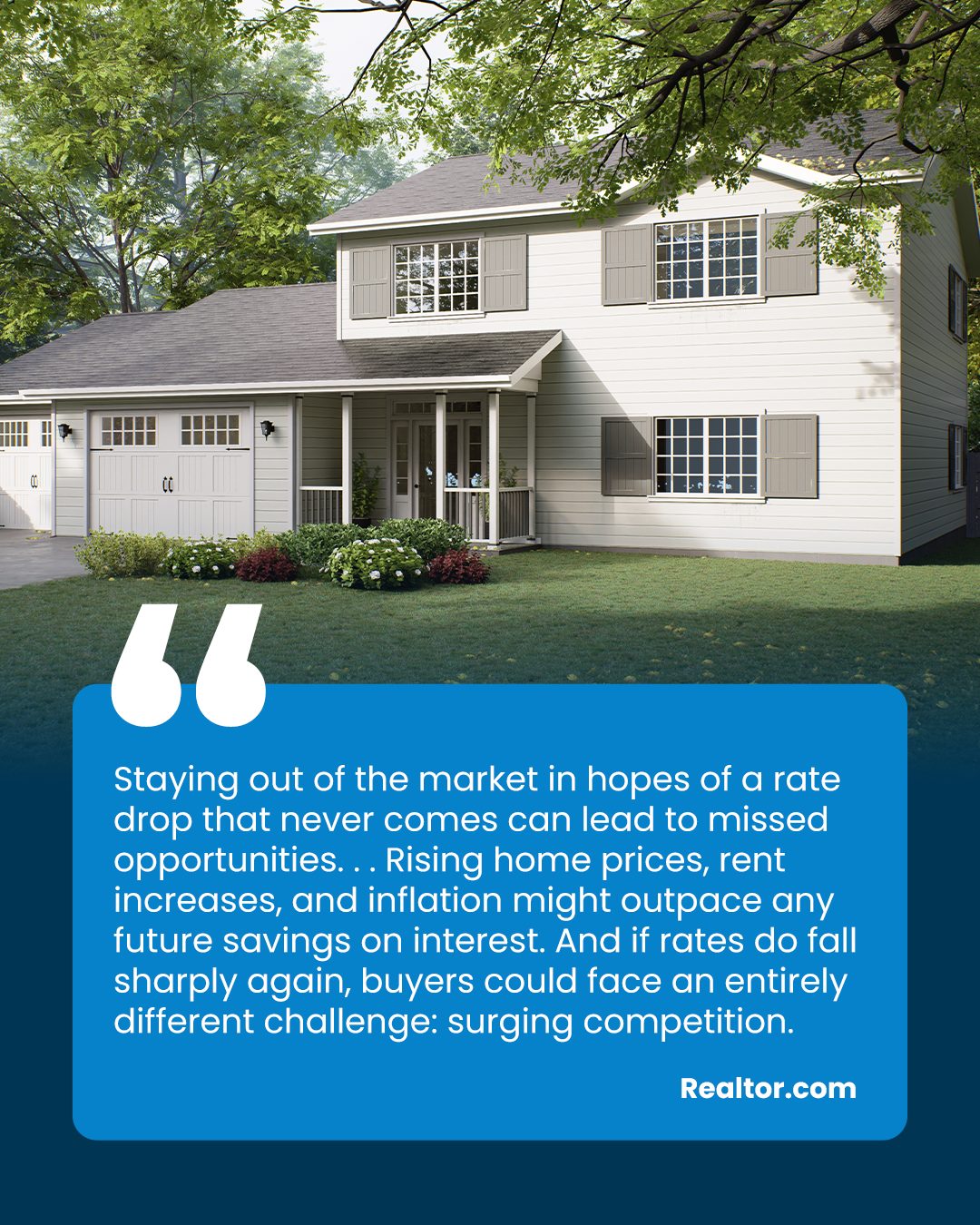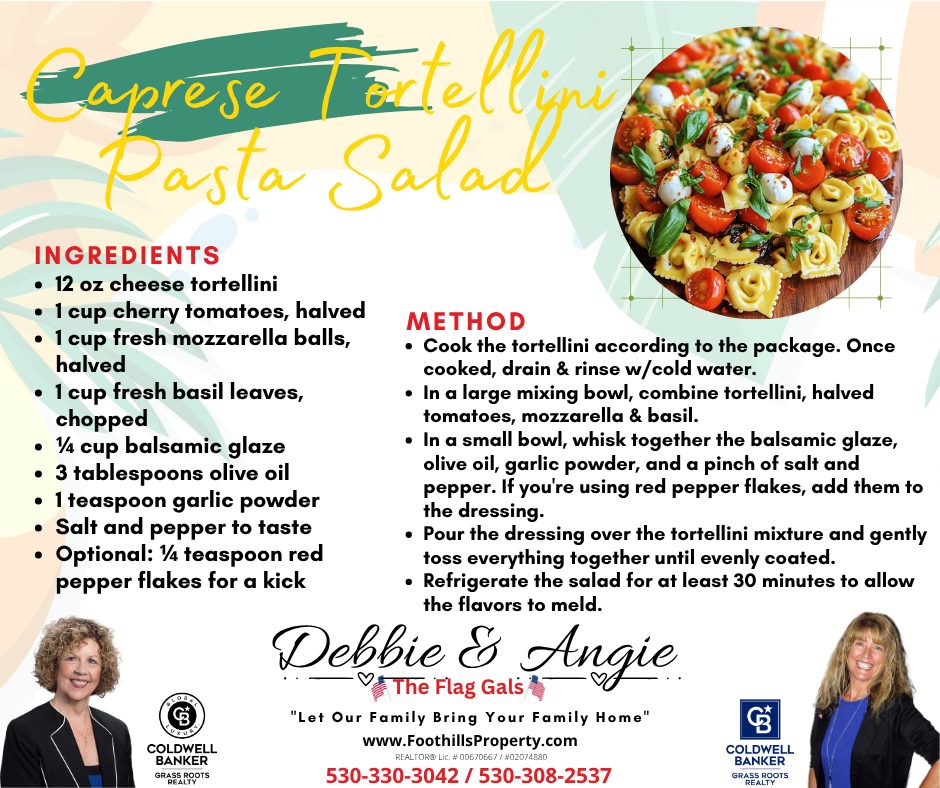Over the past few weeks, mortgage rates hit their lowest point of the year – and it was big news.
So, what you need to know if you’re buying a home is, whenever these shifts happen (whether they’re now or later), even a small change in rates can make a big difference in your monthly payment.
While major drops in mortgage rates aren’t projected for the rest of 2025, smaller declines are still expected – depending on where the economy goes from here.
If you want to see what the math looks like at another home loan amount or mortgage rate, DM me and I’ll run the numbers for you, so you can plan ahead.

#WeBringUHome #MortgageRates #Homebuyuing
We get it — 3% mortgage rates were incredible. But those ultra-low rates were a unique response to a very specific moment in history… not the new normal. And according to most experts, they’re not likely to return.
Here’s something to consider: if rates do drop, so many buyers will jump back into the market. That means more competition, more bidding wars, and potentially higher home prices.
If you’re in a position to buy now, this might actually be your window of opportunity — and we have smart tools and strategies to help you navigate today’s market with confidence.
Let’s talk about what’s possible for you, right now. You don’t have to wait for the “perfect” rate to find the perfect home.
— Debbie & Angie 💛
www.FoothillsProperty.com




Summer is in full swing, and there's no better time to dive into the real estate market! Whether you're buying your dream home or selling to start your next chapter, the season is packed with perks!

-
Increased Inventory: More listings mean more options to find that perfect home.
-
Longer Days: More daylight = more time to explore and attend showings!
-
Relocation Ease: Families move while kids are out of school—great for planning!
-
Great Weather: Ideal conditions for home inspections and smooth moves.
-
Outdoor Appeal: Lush lawns and blooming gardens help you envision life in your new space.

-
High Demand: More buyers are on the hunt—hello competitive offers!
-
Curb Appeal: Sunny skies and blooming landscapes show your home at its best.
-
School Year Strategy: Buyers want to settle in before fall—more urgency = quicker closings.
-
Top Dollar: Historically, homes sell for more in the summer due to higher buyer activity!
Let us help you make the most of this vibrant real estate season! 



#SummerRealEstate #FoothillsLiving #BuySellMove #HomesOfDistinction #DebbieAndAngie #TheFlagGals #LakeOfThePines #AuburnCA #RealEstateTips
#recipesbyangie
It’s Tasty Thursday and we’re spicing things up in the kitchen! 😋 This week’s recipe is a flavor-packed Chipotle Ranch Grilled Chicken Burrito—perfect for a quick weeknight dinner or a crowd-pleasing weekend lunch. 🐔🧀🌯
💥 What You’ll Love About It:
Smoky chipotle seasoning, juicy grilled chicken, cool ranch creaminess, and all your favorite burrito fillings—rolled up in a warm tortilla for the ultimate bite! 🌮❤️
✨ Angie’s Tip:
Wrap it tight, toast it on a skillet for that golden crunch, and don’t forget the guac! 🥑👌
Whether you're enjoying it by the lake or sitting on your back deck enjoying the evening, this burrito brings bold flavor to your table. Let me know if you try it! 👩🍳💬
📲 Visit our blog every Thursday for more delicious recipes at www.FoothillsProperty.com
Happy Cooking! 🥄❤️
– Angie
#TastyThursday #ChipotleRanchBurrito #FoothillsFlavor #HomeAndHearth #recipesbyangie

While you’ve been living life, your home has been quietly working for you — building wealth in the background! 🌟 Thanks to rising home prices and every payment you’ve made on your mortgage, your investment is growing stronger every day.
According to the latest data, the average homeowner now has about $311,000 in home equity. 💰 That’s six figures you could be sitting on — without even realizing it!
When’s the last time you had a real estate professional show you what your home is really worth and how much equity you have? 📈
If you're curious, we’d love to help! 💬 Let's run the numbers together and show you the possibilities. You might have more options than you think!
— Debbie & Angie
#webringuhome ❤️
🔗 www.FoothillsProperty.com
#HomeEquity #HomeValues #KeepingCurrentMatters #EquityOpportunity

Our Spring has officially sprung, and that means the real estate market is buzzing with activity again! 🐝🌷 More buyers are jumping back in, which also means more competition.
If you’re dreaming of landing that perfect home in Lake of the Pines, Auburn, Alta Sierra, or anywhere in our beautiful Sierra Foothills, you’ll need more than a wish list — you’ll need a smart strategy! 💪✨
Here are 4 tried-and-true tips we’ve been sharing with our buyers to help their offers rise to the top this season:
1️⃣ Skip the Lowball – Price It Right 💰
We totally get it – everyone wants a deal! But starting with a super low offer in this competitive spring market can hurt more than help. It may even turn off the seller completely. 😬
As your local experts, we’ll help you understand what’s truly competitive and fair for the neighborhood you’re buying in — so your offer is taken seriously from the start. ✅
2️⃣ Think About an Escalation Clause ⬆️📈
Worried someone else might swoop in with a slightly higher offer? An escalation clause can be a great tool. It automatically increases your offer (up to a certain limit you choose) if another offer comes in higher.
It’s like saying, “I’m serious about this home, and I’m willing to compete — but smartly.” 🧠
We’ll help you figure out whether this strategy is a good fit for your budget and the property you're after. And of course, we’ll make sure you’re protected if the appraisal doesn’t come in where we want it.
3️⃣ Be Mindful About What You Ask For 🙏📝
It’s okay to ask for some help with closing costs or repairs, but too many concessions can make your offer less appealing — especially if another buyer has fewer strings attached. 🎈
We’ll guide you through what’s reasonable to ask for in today’s market, and help you craft an offer that’s attractive to the seller without giving up what matters most to you.
4️⃣ Timing Can Be Everything ⏰🏡
It’s not always just about the price — sometimes the timeline can be the key to winning.
Does the seller need extra time to move? Or do they want to close fast? Being flexible (if you can!) might just be what puts your offer ahead of the pack. 💨📦
We’ll connect with the seller’s agent to find out what timeline works best for them — and position your offer accordingly.
💡 Bottom Line from Debbie & Angie:
This spring market is moving fast 🌸💨 — but we’re here to help you move smarter. Whether you’re buying in Lake of the Pines or one of our surrounding foothill communities, we’ll make sure your offer is strong, competitive, and thoughtfully crafted.
Let’s go win your dream home! 🏡💕
👉 Reach out to us anytime – we’re ready when you are!
📞 Debbie & Angie | Let Our Family Bring Your Family Home





 Increased Inventory: More listings mean more options to find that perfect home.
Increased Inventory: More listings mean more options to find that perfect home. Longer Days: More daylight = more time to explore and attend showings!
Longer Days: More daylight = more time to explore and attend showings! Relocation Ease: Families move while kids are out of school—great for planning!
Relocation Ease: Families move while kids are out of school—great for planning! Great Weather: Ideal conditions for home inspections and smooth moves.
Great Weather: Ideal conditions for home inspections and smooth moves. Outdoor Appeal: Lush lawns and blooming gardens help you envision life in your new space.
Outdoor Appeal: Lush lawns and blooming gardens help you envision life in your new space. High Demand: More buyers are on the hunt—hello competitive offers!
High Demand: More buyers are on the hunt—hello competitive offers! Curb Appeal: Sunny skies and blooming landscapes show your home at its best.
Curb Appeal: Sunny skies and blooming landscapes show your home at its best. School Year Strategy: Buyers want to settle in before fall—more urgency = quicker closings.
School Year Strategy: Buyers want to settle in before fall—more urgency = quicker closings. Top Dollar: Historically, homes sell for more in the summer due to higher buyer activity!
Top Dollar: Historically, homes sell for more in the summer due to higher buyer activity!